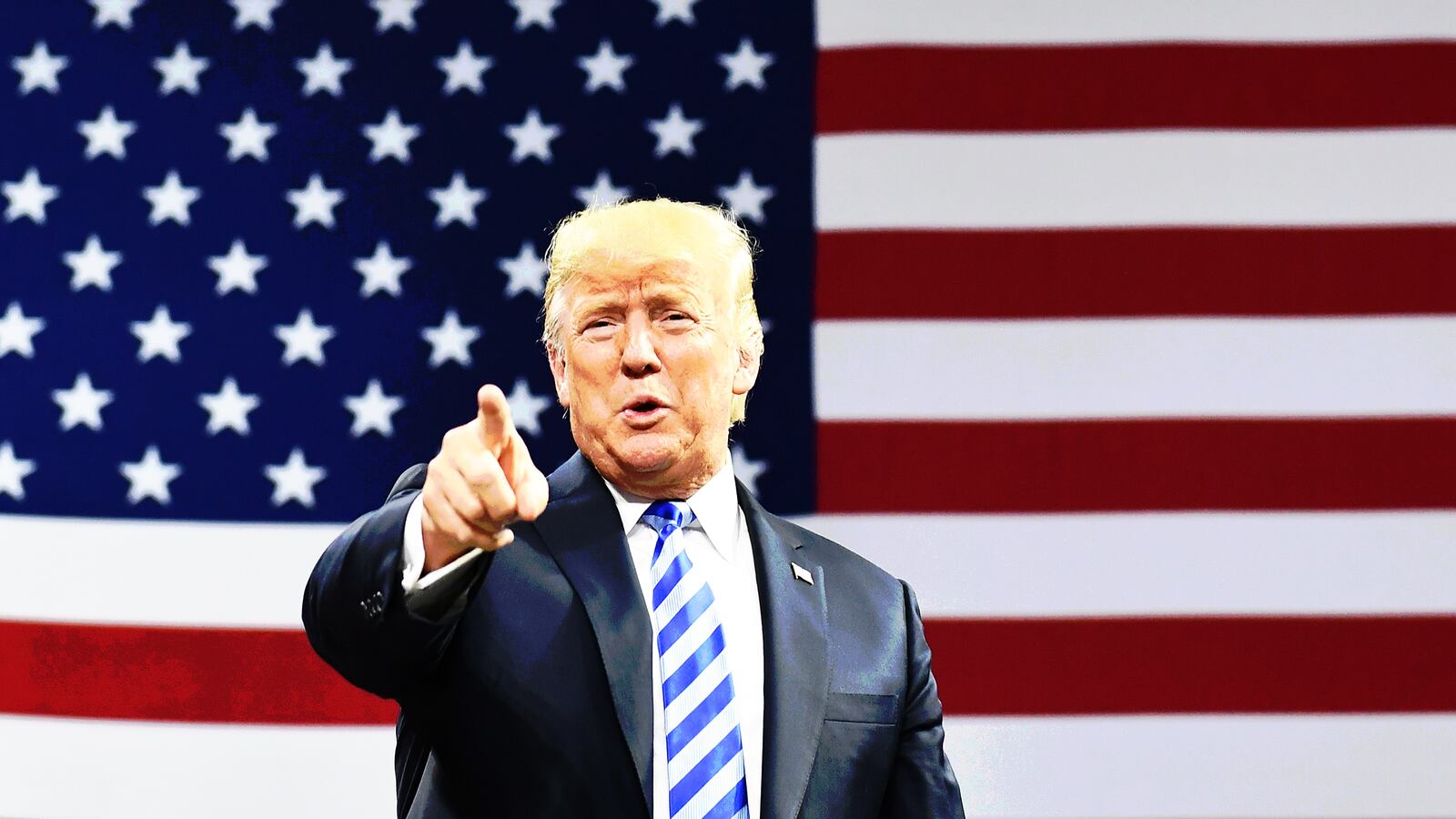Following the most dramatic and, for my side, satisfying day of the Trump presidency, we now have demonstrable and credible evidence that Donald Trump participated in the commission of a crime. You know, “in coordination with and at the direction of,” and all that.
The world’s Alan Dershowitzes and Gregg Jarretts can split golden presidential hairs until Melania goes to Africa, but anyone who isn’t a liar or a hack or an idiot now knows that Trump paid hush money to these two women for the purpose of affecting the election outcome, and that these payoffs were crimes.
So I ask the talking heads who discuss a hypothetical “bridge too far,” as in “the president doing X would certainly be a bridge too far for Republicans”: Have we reached that bridge yet with the president’s campaign manager convicted and his personal fixer pleading guilty to crimes committed on Trump’s behalf?
Paul Ryan: “We are aware of Mr. Cohen's guilty plea to these serious charges. We will need more information than is currently available at this point.”
Charles Grassley: “All we know about it is he's pled guilty, and everything else that you're asking me about is speculation. And I don't think I should be speculating.”
Lindsey Graham: “Campaign finance violations—I don’t know what will come from that, but the thing that will hurt the president the most is if, in fact, his campaign did coordinate with a foreign government like Russia. Anything short of that is probably going to fall into partisan camps.”
Mitch McConnell: [crickets]
If you happened to hear rather than read Orrin Hatch’s comments about how the president “should not be held responsible for the actions of the people he’s trusted,” you heard the unmistakable tone of resignation in his voice. No defiance. Or a trace of the Hatch who said late last year that Trump’s might end up being “the greatest presidency ever.” A little worry and introspection has crept in.
Still, as to that bridge, we’re not close.
And we’re not close because the whole conceit of the bridge’s existence is a fantasy. This is what, in my last few columns, I’m trying to get people to understand.
The metaphor of this “bridge” that will finally make Republicans say “enough!” is predicated on the idea that the Republicans and Trump are two different entities. That there is a Republican Party that is still the party of Abe Lincoln and Wendell Willkie (a very admirable man, if you don’t know anything about him) and Dwight Eisenhower and Ronald Reagan. A party that embodies certain traditions and upholds certain principles; that is “conservative,” which means, literally, that it seeks to conserve certain ideals.
That party is dead. As the Munchkins said of the witch, it is morally, ethically, spiritually, physically, positively, absolutely, undeniably, and reliably dead. It died when it let Trump have its nomination. It died when men like Rand Paul, who once said “a speck of dirt is way more qualified to be president,” became Trumpists. It died when Paul Ryan praised Trump’s “exquisite” leadership (such an exquisitely fawning word!). It died in the very first week of his administration, really, when Trump’s complete insanity about his inaugural crowd was apparent to everyone, and no one said a word, sycophants scurrying to reassure a mad potentate.
But what the Republicans are doing is even worse than mere sycophancy. They are in agreement with Trump on priorities, policy, world view. They agree on the wall. They agree (with limited exceptions) on scapegoating undocumented immigrants. They agree on giving more money to rich people. They agree on doing everything they can to see to it that black people can’t vote.
Did you notice this week what happened on that front? The ironies here are greater than a normal person can even take in. One Georgia county announced it wants to shutter polling places—in black neighborhoods, lo and behold—because they don’t comply with the Americans with Disabilities Act. What kind of person do you have to be to decide to pit two of the great civil rights accomplishments of the last 50 years against each other? In a word, a Republican.
The county’s elections board didn’t say you need to do A, B, and C to be compliant. It just said, we’re closing you. The same sites, in the same condition, were open to voters earlier this year. What could be the difference? Maybe this: Earlier this year, a black woman wasn’t close to becoming the next governor. Now, she is.
After Stacey Abrams won the Democratic primary, Trump tweeted about her. Called her “crime-loving.” Right. We get it, Donald. So Trump takes care of the rhetorical framework, and a month later, some state Republicans swoop in to look after the mechanics.
They are the same. Their intoxication with power is the same, their contempt for the Constitution is the same, their desire not merely to defeat liberalism at the polls but to utterly destroy it is the same (indeed, that last urge is probably greater among Republicans than it is within Trump).
The idea that Trump will finally cross some line that will compel them to bring down some righteous fury on him is silly and naïve. With what moral authority? They have none. And believe me, Trump knows this. He may be a nincompoop, but the one thing he understands is alpha-male power relationships.
They will turn on him only when their own careers are on the block—when that bridge is lined with their openly displayed necks, the electoral guillotine dangling ominously above them.
Until then, there is no bridge too far. There’s just a bridge to nowhere. They are the same degraded entity. And the only thing they’re trying to “conserve” is their power. Things still have to get a lot worse in Trumpland for the Republicans to act, but even then, it will be to save their necks, not to find their spines.





